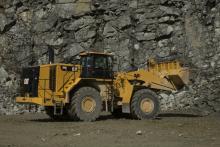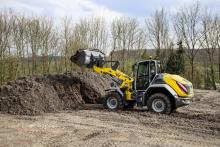
Working in the construction industry can be tough, strenuous and at times, stressful. It’s a manual industry where injury and ill health are can occur, which is why
Last year, over 69,000 construction workers in Great Britain were suffering from an illness they believed was caused or made worse by work, and over 23 million days of work were lost as a result. Common illnesses are depression or anxiety and musculoskeletal disorders, as well as work-related injuries (source: 2015/2016 Health Place Statistics). So while that’s the bad news, the good news is that paying closer attention to our health and wellbeing can reduce the risk of becoming unwell, and even improve our productivity.
Exercise helps us to retain a good level of physical health, reducing the risk of illness. It also releases endorphins – a natural stress-fighter – and increases energy. Memory and concentration levels are also elevated, as aerobic exercise boosts the size of the hippocampus – an area in the brain that is involved in verbal memory and learning (University of British Columbia). Exercise also increases cognitive ability – especially important when operating heavy machinery.
When sitting in the cab of a machine all day, we can fall into bad habits, particularly when it comes to our posture. Bad posture not only puts stress on our body’s muscles and ligaments, it can reduce the amount of oxygen we are able to take in, contributing to fatigue. Sitting up straight opens the lungs, allowing us to consume more oxygen, which fills our muscles and enhances our overall energy levels. Many machine cabs have been specially designed to promote good posture and enhance operator comfort. Volvo Construction Equipment (Volvo CE) boasts one of the best cabs in the industry, with an adjustable seat, removable steering column (on certain models) and Automatic Climate Control (ACC).
If you’re sitting down for most of the day, try doing some leg extensions and try to move about for a couple of minutes every hour – our bodies did not evolve to sit in chairs all day.
Exercise can also help to improve our posture and there are specific exercises that strengthen the muscles in our back and abdominals, such as sit-ups, the plank, back extensions and upright row. Some exercises can even be done in the cab. Try engaging your core with some side crunches, or if there’s enough space, arm circles and arm raises.
Whether it’s 15 minutes or 60 minutes of exercise, four or five times a week, we can all find the time to fit a workout into our routine. Exercising in the morning is a great way to start the day. It kick-starts the metabolism, can help us to sleep at night (according to the National Sleep Foundation) and releases plenty of good hormones. In fact, it’s because of these hormones that exercising too close to bedtime could have an adverse effect on sleeping, as you may be feeling too ‘pumped’ to sleep.
On a journey to become an industry leader in sustainability, the Volvo Group has reviewed the 17 sustainable development goals, established by the United Nations, and chosen to focus on those most relevant to the business – one of these is goal number three, ‘Good health and wellbeing’.
In support of this, the group has an array of initiatives to promote this goal. Within Volvo CE, a non-profit organisation – called Volvo Fritid – has been running for 30 years and encourages employees to participate in activities such as badminton, bowling, fishing, golf, tennis and volleyball. At some sites, including Eskilstuna, Braås and Arvika in Sweden, group exercise classes take place either in the morning, at lunchtime or after work, ranging from dance and yoga to Tabata.
Skanska, the multinational contractor based in Sweden, launched a ‘Stretch and Flex’ programme in 2009, as part of its Injury Free initiative. The programme encourages employees to participate in an early morning workout – arranged by the company – to set them up for the day.
Due to the arduous tasks that construction workers face every day and the high-risk situations they are commonly presented with, it’s increasingly important that they pay attention to their physical wellbeing – not only will your work life improve, but your personal life will too.







